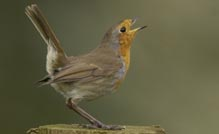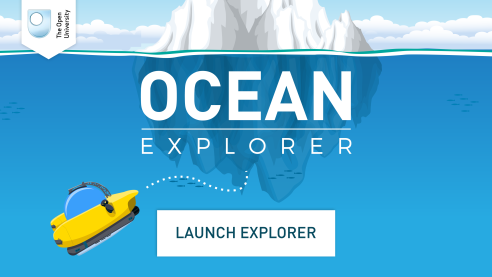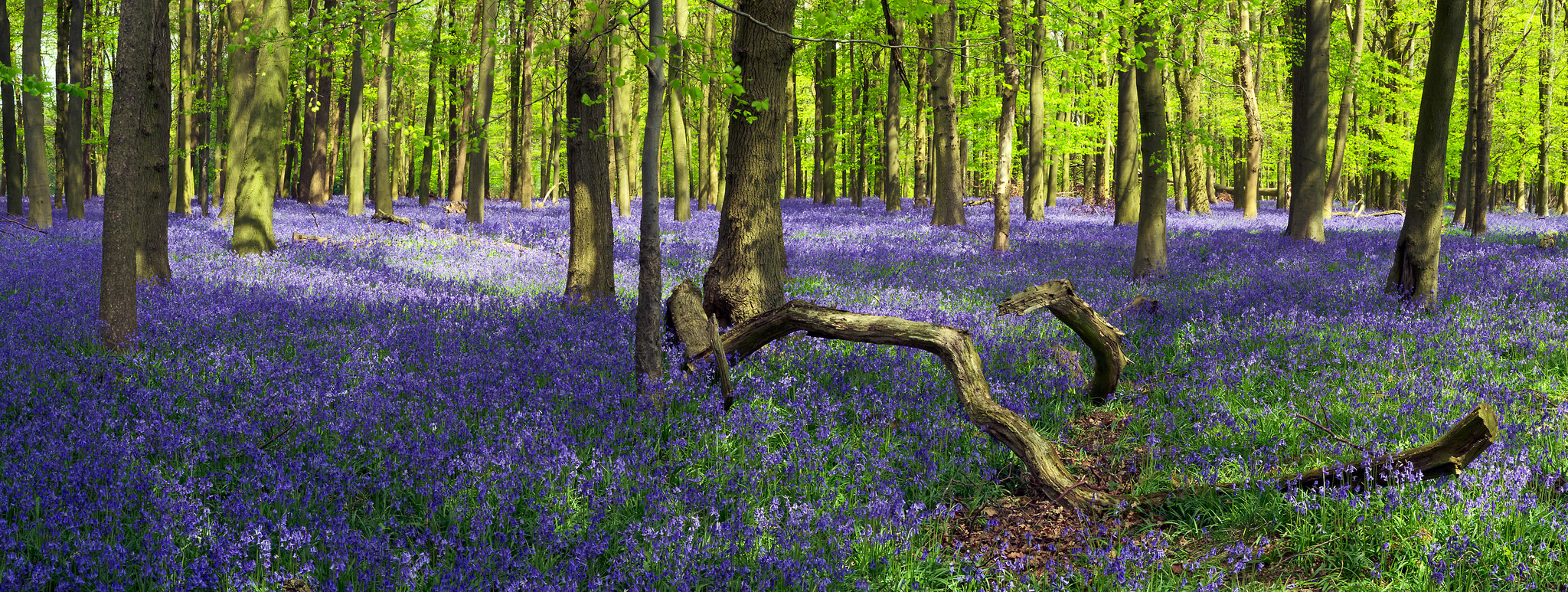Plastic pollution is everywhere - even in our bodies as microplastics. World Environment Day 2025 urges collective action to end it. This year’s campaign highlights nature-based inspiration and real-world solutions to drive lasting change across all levels of society. Join the #BeatPlasticPollution movement!
You'll find we have plenty of FREE resources on plastics, sustainable living and the environment here on OpenLearn, so we've pulled together our best courses and content for you to explore...
-
Can microplastics find their way onto your plate?
Read now to access more details of Can microplastics find their way onto your plate?What harm can microplastics cause to human health and can they get into our food? Joanna Jesionkowska, a research student at The Open University, looks into this here.

-
Plastics in our ocean
Take part now to access more details of Plastics in our oceanTest your knowledge about plastics in our oceans, and learn about how they impact the environment by clicking on the image below...

-
How do microplastics make their way into our food?
Read now to access more details of How do microplastics make their way into our food?We know that microplastics have found their way into our food chain. Understanding the sources of microplastics, their journey to our plates, and what we can do to reduce the risks is essential for tackling this pressing issue.

-
Going on a plastic diet
Watch now to access more details of Going on a plastic dietSisters Against Plastic (Mary and Theresa) are ‘normal people’ who noticed just how much plastic they were using.

-
Introduction to ecosystems
Learn more to access more details of Introduction to ecosystemsIf we don't grasp why ecosystems function, it becomes harder to determine possible reasons for when they don't, and makes it difficult to identify possible environmental threats to humans. In this free course, Introduction to ecosystems, you will discover how organisms are linked together by complex interrelationships, how such links are studied...

-
Eating for the environment
Learn more to access more details of Eating for the environmentThis free course, Eating for the environment, will explore the links between food, nutrition and environmental sustainability.

-
Introducing the environment: Ecology and ecosystems
Learn more to access more details of Introducing the environment: Ecology and ecosystemsWhat is ecology and why is it important to our understanding of the world around us? This free course, Introducing the environment: Ecology and ecosystems, looks at how we can study ecosystems to explore the effect that humans are having on the environment.

-
Sustainability Hub
Learn more to access more details of Sustainability HubLearn about living sustainably with this collection of free courses, articles, interactives and films from The Open University.

-
Butterflies tell us more than you might think about our natural world
Read now to access more details of Butterflies tell us more than you might think about our natural worldWhy do butterflies matter? Willow Neal explains why they should be prioritised for conservation and introduces us to some butterfly species in the UK.

-
Make a bird house
Take part now to access more details of Make a bird houseThe total area of garden space in the UK is probably greater than that of all the nation's nature reserves. Converting just a small section of your garden into a breeding place for birds can make a small but significant contribution to the survival of bird species.

-
Environment: treading lightly on the Earth
Learn more to access more details of Environment: treading lightly on the EarthEnvironment: treading lightly on the Earth focuses on the problem of greenhouse gas emissions, especially carbon dioxide. This free course will give you an understanding of the nature and importance of carbon footprints of individuals and households. It will enable you to measure your own carbon footprint and explore what you could do to reduce ...

-
Fire ecology
Learn more to access more details of Fire ecologyThis course explores the role of fire as a natural disturbance in ecosystems. It introduces the concept of a fire regime and its influence on the type and distribution of organisms that occur in fire prone ecosystems. It also looks at some of the adaptations of plants that have evolved in these ecosystems and how animals either avoid or exploit ...

-
Neighbourhood nature
Learn more to access more details of Neighbourhood natureThere is a fascinating world of nature all around us which we can see if we know how to look for it. Wherever you live, be it in a city or the countryside, you will find areas that support a range of wildlife. This free course, Neighbourhood nature, will provide you with basic scientific and observational skills so that you can go into your ...

-
Introducing Climate Psychology: facing the climate crisis
Learn more to access more details of Introducing Climate Psychology: facing the climate crisisThis free course introduces the emerging field of Climate Psychology. It is now widely accepted that facts about climate change, taken alone, do not promote change. There is growing recognition that deeper psychological perspectives, beyond traditional psychological approaches, could enrich environment movements. Additionally, evidence is ...

-
Mycoprotein - could this meat alternative be a food for the future?
Read now to access more details of Mycoprotein - could this meat alternative be a food for the future?How do we feed a growing global population? James McCarron compares the production of mycoprotein to meat. With significantly less impact on the environment than meat, does mycoprotein deserve more recognition?

-
The role sustainable chemistry plays in shaping the planet's future
Read now to access more details of The role sustainable chemistry plays in shaping the planet's futureDiscover why research into sustainable chemistry is vital to reduce both the use of resources and the environmental impact of society on the planet.

-
Climate justice for the next generation
Learn more to access more details of Climate justice for the next generationThis free course, Climate justice for the next generation, frames global warming and climate change in terms of social justice, human rights and intergenerational equality and emphasises how children and those least responsible for climate change are the ones who suffer its most significant consequences. The course looks at the impact ...

-
Waste management and environmentalism in China
Learn more to access more details of Waste management and environmentalism in ChinaThis free course, Waste management and environmentalism in China, is an introduction to waste generation and waste management processes currently being practiced in China. This course explores how the Chinese can deal with increasing volumes of waste, drawing parallels with the UK experience of waste management. It also discusses the conceptual ...

-
Wangari Maathai: standing up for women and the environment
Read now to access more details of Wangari Maathai: standing up for women and the environmentProfessor Wangari Maathai was an environmentalist and the first female African Nobel Peace Prize winner. Yoseph Araya explores her contribution to the environment and what that meant to be a woman in this field of work.

-
Ocean explorer
Take part now to access more details of Ocean explorerTake a journey into the Earth's oceans and discover whether you've got what it takes to become an oceanographer. Explore ocean depths, currents, temperatures and find out more about the future of our oceans.

-
Could we control our climate?
Learn more to access more details of Could we control our climate?Climate crisis is one of the grand challenges we face as a society, but it can be hard to approach as a subject. Not only can the science at times seem dauntingly complex, but the solutions are also far from clear. This leaves many people feeling confused, guilty, anxious, angry, or else completely switched off from the subject. This course ...


Rate and Review
Rate this article
Review this article
Log into OpenLearn to leave reviews and join in the conversation.
Article reviews